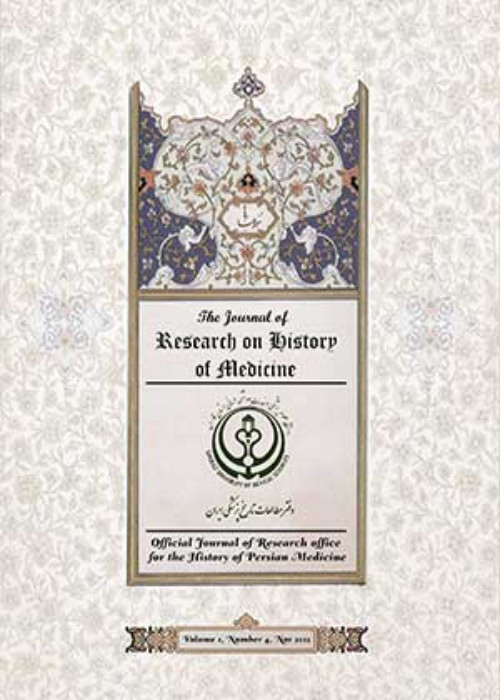An Introduction to the Genesis and Durability of Hisbat Discipline in Medicine and Public Health in Islamic Civilization from the Fourth to the Sixth Lunar Centuries: A Case Study of Baqdad and Cairo
Author(s):
Abstract:
Although experts and historians hardly share the same opinion over the first signs of Hisbat (Hisbat) in the history of Islam, by looking at the history of Islam, the creation of Hisbat system can be sought in Madinat-AI-Nabi in the Prophet era. And whereas the Hisbat system, in this period of time, was not popular and organized like what was shaped in the Abbasid era, it established a structured system of monitoring urban and public affairs in the Islamic civilization. The principle of “enjoining the good and forbidding the evil” forms the foundation of Hisbat which can be searched in Quranic verses. Besides the Quran, Hadiths in the Islamic society are also the important source of Hisbat. Muslim lawyers and jurists, regardless of different sects they belong to, have emphasized that in a Muslim community it is obligatory to follow Hisbat and the principle of “enjoining the good and forbidding the evil”. Hisbat, as a duty as well as a religious and moral/ethical job, attracted the Prophet Mohammad (pbuh), Caliphates and Muslim rulers and with the advancement of Islamic societies, it became more structured and organized. It is based on the command “to do well and prevent evil deeds” which is expected to be applied in the Muslim community and Dhimmitude under Islamic governing on bail. This has led to the development of people’s life under the auspice of Hisbat’s principles. Treatment, along with public health, was one of the issues observed and followed under the supervision of Hisbat and the principle of “enjoining the good and forbidding the evil” since the era of the Prophet Mohammad(pbuh). This prophetic tradition was institutionalized in the Islamic civilization and as a religious and social affair has organized and implemented Islamic justice and fair supervision in this field of civil affairs of the Islamic world. This article studies how the Prophet monitors social and economic matters in general, and public health and hygienic affairs in particular. Quality Hisbat system as a regulatory body in Baqdad and Cairo, the two important capital cities of Islamic civilization, is also investigated.
Language:
Persian
Published:
Journal of Research on History of Medicine, Volume:3 Issue: 2, May 2014
Page:
87
magiran.com/p1263266
دانلود و مطالعه متن این مقاله با یکی از روشهای زیر امکان پذیر است:
اشتراک شخصی
با عضویت و پرداخت آنلاین حق اشتراک یکساله به مبلغ 1,390,000ريال میتوانید 70 عنوان مطلب دانلود کنید!
اشتراک سازمانی
به کتابخانه دانشگاه یا محل کار خود پیشنهاد کنید تا اشتراک سازمانی این پایگاه را برای دسترسی نامحدود همه کاربران به متن مطالب تهیه نمایند!
توجه!
- حق عضویت دریافتی صرف حمایت از نشریات عضو و نگهداری، تکمیل و توسعه مگیران میشود.
- پرداخت حق اشتراک و دانلود مقالات اجازه بازنشر آن در سایر رسانههای چاپی و دیجیتال را به کاربر نمیدهد.
In order to view content subscription is required
Personal subscription
Subscribe magiran.com for 70 € euros via PayPal and download 70 articles during a year.
Organization subscription
Please contact us to subscribe your university or library for unlimited access!


